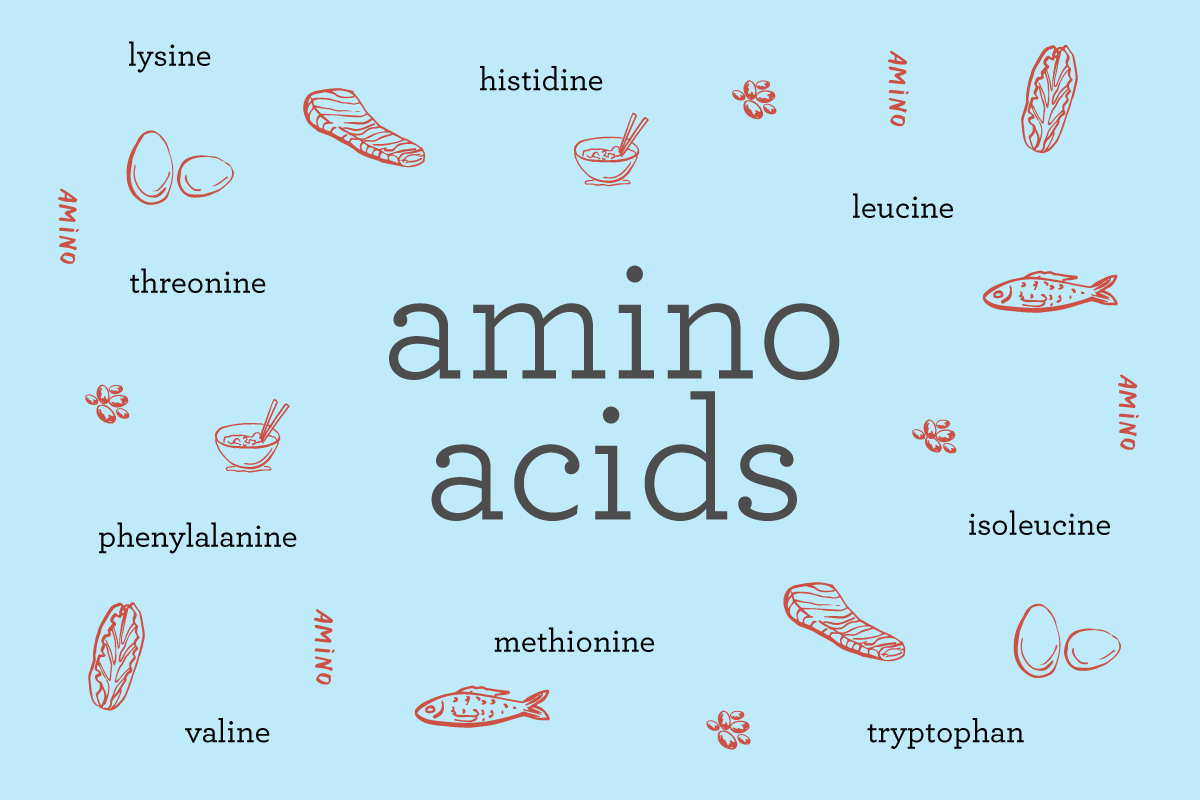Your body needs 20 different amino acids to function properly. But what exactly are amino acids? And which foods should you eat to get the amino acids you need?
WellTuned spoke with Erica Fleming, registered dietitian-nutritionist at BlueCross BlueShield of Tennessee, to find out.
What are amino acids?
“Amino acids are the building blocks of protein, which is what our bodies use to build and maintain muscles,” says Fleming. “Amino acids also help synthesize hormones and neurotransmitters, which keep our bodies functioning properly.”
If your body doesn’t get enough of the right amino acids, you may experience:
- Decreased immunity
- Difficulty thinking clearly
- Digestive issues
- Depression
- Fertility problems
- Growth issues in children
What are essential amino acids?
“Of the 20 amino acids that exist, healthy bodies can manufacture 11 on their own,” says Fleming. “That leaves 9 amino acids that we can’t produce and have to get through our food. Those are the 9 essential amino acids.”
If, however, you’re ill or under increased stress, your body may be unable to make enough of the 11 naturally occurring amino acids you need. In those cases, your provider may recommend supplements.
“It’s also important to note that there are some foods that contain all 9 essential amino acids,” says Fleming. “We call those ‘complete proteins,’ and they include meat, poultry, eggs and dairy. For vegetarians and vegans, complete proteins include soy products, tofu, quinoa and buckwheat.”
9 essential amino acids + foods that include them
The following foods contain all 9 essential amino acids:
- Fish
- Poultry
- Eggs
- Beef
- Pork
- Dairy (milk, cheese)
- Whole soy (tofu, edamame, tempeh, miso)
- Quinoa, buckwheat, nutritional yeast
- Chia and hemp seeds
Below are 9 essential amino acids, the functions they help with and the foods that are highest in each. [Listed in alphabetical order, not in order of importance.]
1. Histidine
- Repairs tissues
- Helps create red blood cells
- Protects nerves
- Facilitates growth
Your body turns histidine into histamine, which boosts immunity, reproductive health and digestion. Deficiency can cause anemia.
Foods that are high in histidine: Lamb, turkey, nuts, seeds, whole grains
2. Isoleucine
- Heals wounds
- Regulates blood sugar
- Boosts immunity
- Helps produce hormones
- Regulates energy levels
Isoleucine deficiency in older people can cause shaking and decreased muscle mass.
Foods that are high in isoleucine: Tuna, lentils, squash seeds, wheat germ, baker’s yeast
3. Leucine
- Regulates blood sugar
- Repairs muscle and bone
- Heals wounds
- Aids growth-hormone production
Deficiency can lead to rashes, hair loss or fatigue.
Foods that are high in leucine: Salmon, beef, chickpeas, brown rice, nuts, soy, legumes
4. Lysine
- Builds muscle
- Maintains bone strength
- Helps you recover from injury or surgery
- Regulates hormones, antibodies and enzymes
Studies suggest that lysine may also have antiviral effects, and deficiency could lead to stress-induced anxiety.
Foods that are high in lysine: Black beans, quinoa, pumpkin seeds, king crab, sardines
5. Methionine
- Helps your body absorb selenium and zinc, which may boost immunity
- Removes heavy metals such as lead
- Strengthens nails
- Makes skin and hair flexible when combined with cysteine (a non-essential amino acid)
Foods that are high in methionine: Brazil nut, lima beans, spinach, lobster
6. Phenylalanine
- Helps your body use other amino acids
- Aids in the absorption of proteins and enzymes
- Is converted into tyrosine, which helps brain function
Phenylalanine is often found in artificial sweeteners (aspartame) in diet sodas, and large doses may cause anxiety and jitteriness. Phenylalanine deficiency can cause eczema, fatigue and memory problems.
Foods that are high in phenylalanine: Chicken, pasta, sweet potatoes, tofu
7. Threonine
- Keeps skin healthy
- Strengthens teeth
- Metabolizes fat
Threonine may help people who struggle with indigestion, anxiety or mild depression.
Foods that are high in threonine: Green peas, cottage cheese, wheat germ, milk, gelatin
8. Tryptophan
- Helps growth in infants
- Aids in the production of serotonin, which regulates appetite, mood and pain
- Acts as a natural sedative and helps create melatonin, which regulates sleep
Tryptophan may improve mental energy and emotional processing in healthy women. Deficiency may cause pellagra, a condition that can lead to dementia, rash or digestive issues.
Foods that are high in tryptophan: Chicken, turkey, sesame seeds, peanuts
9. Valine
- Helps you concentrate
- Aids muscle coordination
- Regulates emotions to keep you calm
Valine deficiency may cause insomnia and make it difficult for you to think clearly.
Foods that are high in valine: Oats, zucchini, cauliflower, mushrooms, cheese
More from Fleming on WellTuned
- How often should you weigh yourself? Answering 5 key questions
- Working from home: tips for staying healthy
Get more information about specific health terms, topics and conditions to better manage your health on bcbst.com. BlueCross BlueShield of Tennessee members can access wellness-related discounts on fitness products, gym memberships, healthy eating and more through Blue365®. BCBST members can also find tools and resources to help improve health and well-being by logging into BlueAccess and going to the Managing Your Health tab.


